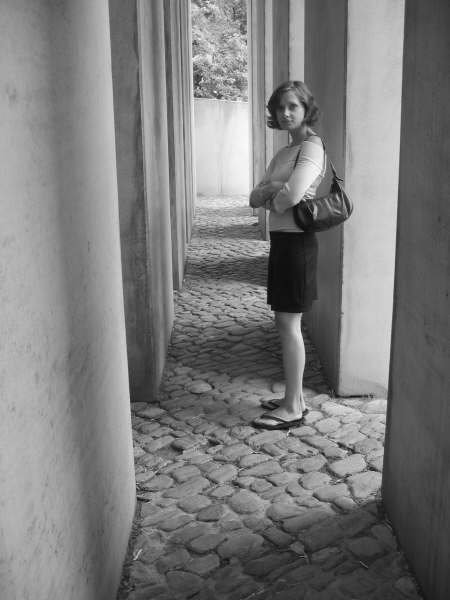All of us UWO Public History students have had the opportunity to conduct at least one interview in the course of our research for our Museum London exhibit. I genuinely enjoyed meeting with my interviewee. He is a collector of one of the technologies that our exhibit will feature, and he was most generous in sharing his time, and items from his personal library, to aid our research.
Furthermore, the whole experience really heightened my sense of belonging in London. The interview occurred about a month ago, during the same week as some of my colleagues and I returned to Museum London's artefact storage facility to examine the material a little more closely than we had on our initial trip in September. It was also during the same week as our Understanding Archives class took place at London Life Insurance, right downtown. The London Life building, the Museum, and my interviewee's house are all within walking distance of my own house, and of Western. By the end of the week, I was struck by how much more comfortable - by how much more at home - I felt in London. My sense of the geography of the city had expanded along with my sense of the city's identity and, of course, it's history. I had also begun to reflect on my own identity, and place, in this city.
Whether we are new to a given community or have lived in it for years, oral history and local history have great potential to heighten our experience of belonging in that community. Conducting oral history interviews and researching local material culture are a couple of ways to build up relationships between people. They can also help us construct (or build on existing) networks of local places, spaces and institutions. Finally, of course, such community research facilitates our sharing of information.
Community institutions such as churches, libraries, museums, galleries, theatres and regional, or municipal parks commissions are ideal candidates to lead community members in recreational oral history, and local history projects. If we could secure federal or provincial funding for those projects by explaining their potential for community-building, we'd be on our way. If we incorporate the building of an online, easy to use, open access digital repository for all of the information gathered an integral part of the project itself, I think we'd really be cookin'. Contributors would have the opportunity to hone their technical skills, too.
Today, there is truly an overabundance of opportunities for us to travel internationally. Work abroad programs, study opportunities, travel, internship and fellowship possibilities invite us to make virtually anywhere a new home. In our world, so many of us move around so much. Participation in discovering the history of the place we reside can amplify any interpersonal connections we make in a new home. Historical research has the potential to not only combat the newcomer's sense of dislocation, but also to help her become an active participant in the community.
Tuesday, December 12, 2006
Subscribe to:
Post Comments (Atom)

No comments:
Post a Comment